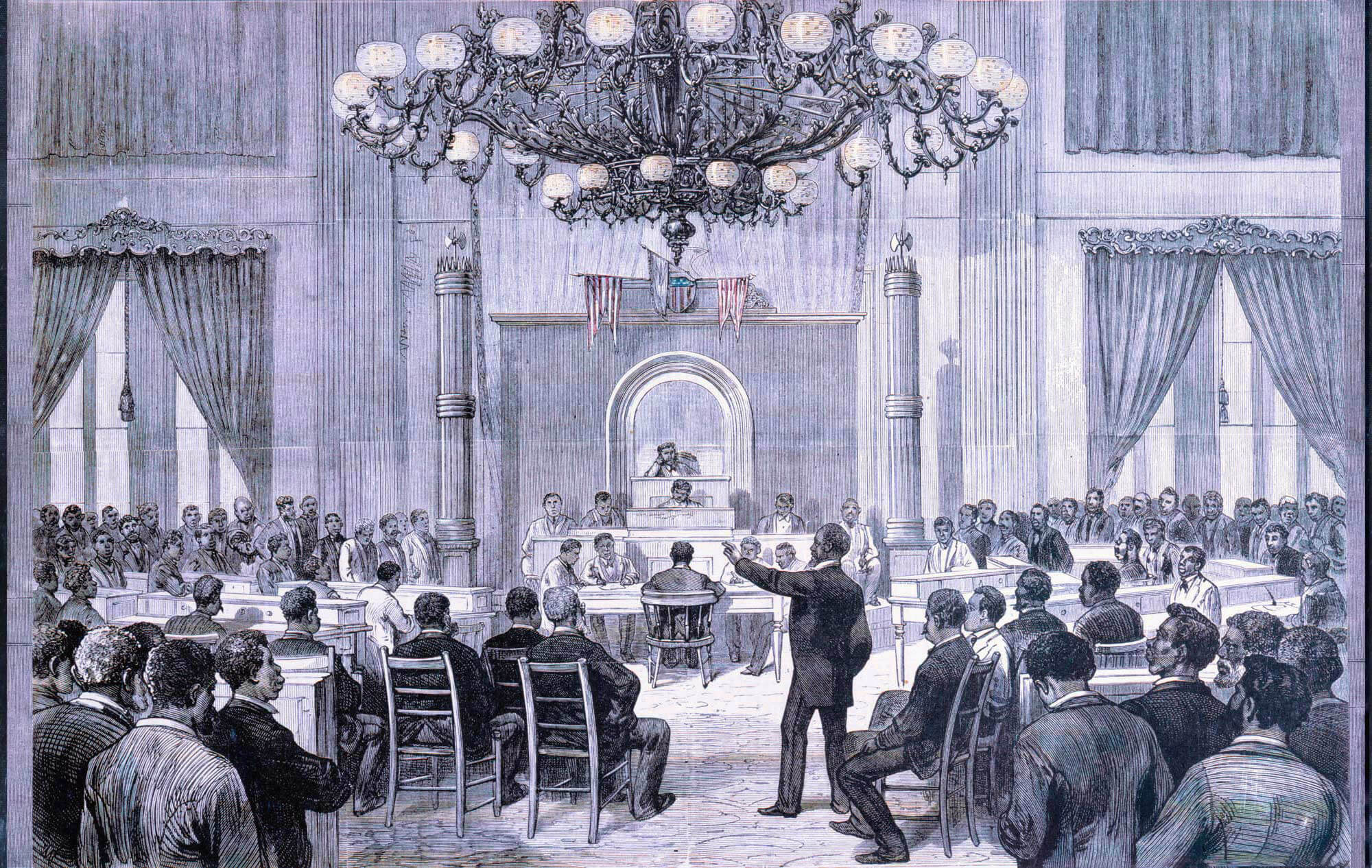 The Richards Prize for the best article in each volume year of The Journal of the Civil War Era is named in honor of George and Ann Richards. In 2002, the Richards made a spectacular contribution to Penn State’s Civil War Era Center, the editorial home of the journal, which provided the Center with a permanent source of income to fund scholarly research and outreach programs that advance our understanding of the Civil War era. This journal has been one of the beneficiaries of their generosity. The editors of the journal created the $1,000 Richards Prize in 2011 to recognize George and Ann Richards not only for their contribution to the center that now bears their name, but also to recognize their contributions to Civil War era scholarship generally.
The Richards Prize for the best article in each volume year of The Journal of the Civil War Era is named in honor of George and Ann Richards. In 2002, the Richards made a spectacular contribution to Penn State’s Civil War Era Center, the editorial home of the journal, which provided the Center with a permanent source of income to fund scholarly research and outreach programs that advance our understanding of the Civil War era. This journal has been one of the beneficiaries of their generosity. The editors of the journal created the $1,000 Richards Prize in 2011 to recognize George and Ann Richards not only for their contribution to the center that now bears their name, but also to recognize their contributions to Civil War era scholarship generally.
 Congratulations to the Winner of the 2024 George and Ann Richards Prize
Congratulations to the Winner of the 2024 George and Ann Richards Prize
Guy Emerson Mount has won the $1,000 George and Ann Richards Prize for the best article published in The Journal of the Civil War Era in 2024. The article, “Shall I Go? Black Colonization in the Pacific, 1840-1914” appeared in the December 2024 special issue, Black Internationalism in the Era of Emancipation, guest edited by Brandon R. Byrd.
The prize committee was impressed by the article’s “innovative approach and its illuminating insights” and praised it for creating “an innovative historical arc that illuminates how white state crafters sought to tackle the problem of emancipation through colonization.” The committee called the article “beautifully written” and predicted that it “will not only offer scholars of slavery, abolition, Reconstruction, and US imperialism a new way to think about the connections between these topics but also fuel further conversation about the place of the Pacific in the histories of nineteenth-century America.”
Mount is an Assistant Professor of History and an affiliate in African American Studies at Wake Forest University. He teaches courses in Atlantic History, Antebellum America, the Civil War and Reconstruction, and the Global History of Reparations. He earned his PhD from the University of Chicago under the direction of Tom Holt. While at Chicago, he co-founded the Reparations at UChicago Working Group which first uncovered the University’s historical ties to slavery while organizing alongside residents of the South Side of Chicago for reparations. Previously he held a Carter G. Woodson fellowship at the University of Virginia and a tenure-track position at Auburn University where he was granted the Outstanding Graduate Mentor Award in 2022. His current book project, from which the winning article is derived, is tentatively titled Black Elsewheres: Slavery, Empire, and Reconstruction in the Black Pacific.
Past Winners
2023 – Kimberly Welch, “The Stability of Fortunes: A Free Black Woman, Her Legacy, and the Legal Archive in Antebellum New Orleans”
2021 – Cynthia Nicoletti, “William Henry Trescott: Pardon Broker,” Volume 11, no. 4 (December)
2020 – Catherine A. Jones, “The Trials of Mary Booth and the Post-Civil War Incarceration of African American Children,” Volume 10, Number 3 (September)
2019 – Caroline E. Janney, “Free to Go Where We Liked: The Army of Northern Virginia After Appomattox,” Volume 9, Number 1 (March)
2018 – Joshua A. Lynn, “A Manly Doughface: James Buchanan and the Sectional Politics of Gender,” Volume 8, Number 4 (December)
2017 – Sarah L. H. Gronningsater, “‘On Behalf of His Race and the Lemmon Slaves’: Louis Napoleon, Black Northern Legal Culture, and the Politics of Sectional Crisis,” Volume 7, Number 2 (June)
2016 – Mark E. Neely, Jr., “Guerrilla Warfare, Slavery, and the Hopes of the Confederacy,” Volume 6, Number 3 (September)
2015 – Millington W. Bergeson-Lockwood, “‘We Do Not Care Particularly About the Skating Rinks’: African Americans Challenges to Racial Discrimination in Places of Public Accommodation in Nineteenth-Century Boston, Massachusetts,” Volume 5, Number 2 (June)
2014 – Ted Maris-Wolf, “‘Of Blood and Treasure’: Recaptive Africans the Politics of Slave Trade Suppression,” Volume 4, Number 1 (March)
2013 – Thavolia Glymph, “Rose’s War and the Gendered Politics of a Slave Insurgency in the Civil War,” Volume 3, Number 4 (December)
2012 – Carole Emberton, “‘Only Murder Makes Men’: Reconsidering the Black Military Experience,” Volume 2, Number 3 (September)
2011 – Anne E. Marshall, “The 1906 Uncle Tom’s Cabin Law and the Politics of Race and Memory in Early Twentieth Century Kentucky,” Volume 1, Number 3 (September)
All winning articles are available in Project Muse. For more information, visit The Journal of the Civil War Era.
